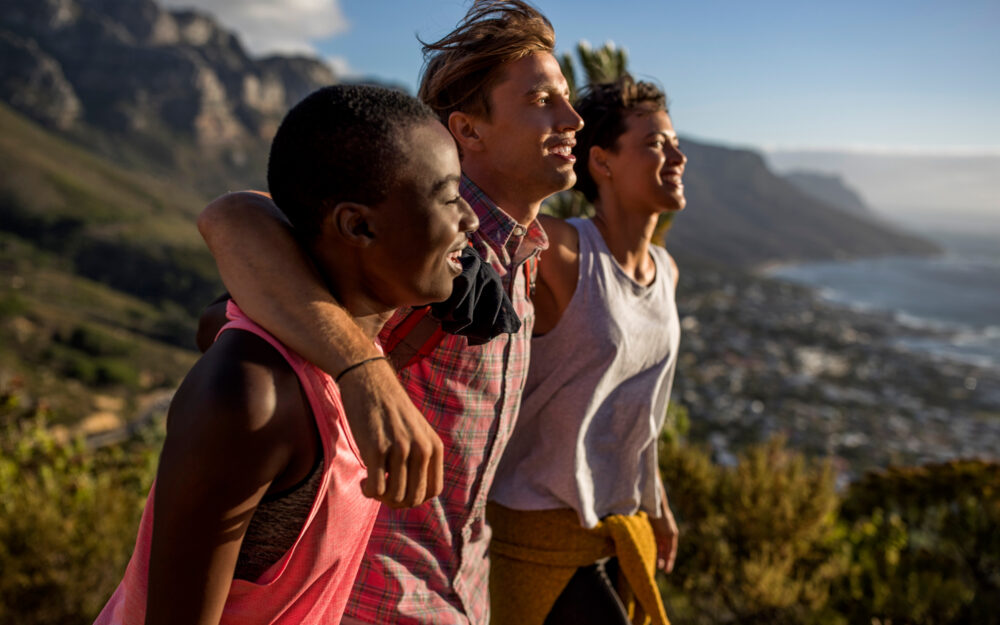If 2024 and 2025 were about travel roaring back, 2026 is the year it gets personal: profoundly and deliberately so. Travellers are done with bucket lists and cookie-cutter itineraries. They’re craving space, reflection and stories they can claim as their own. The twist? Many are using AI to design itineraries and find those moments of human connection.
South Africans, ever-savvy adventurers, are leaning into this new era with a blend of curiosity and caution. Whether exploring the Balkans or rediscovering the Karoo, the focus is less on “seeing everything” and more on feeling something.
The Era of You
Global travel analysts predict that next year will be defined by hyper‑personalised journeys, where itineraries mirror personality as much as preference. As an example, Hilton’s 2026 Trends Report explores the “Rise of the Whycation”, where travellers are choosing trips that begin with purpose, not just a place. In other words, people aren’t asking “Where should I go?” but rather, “Why are we going?” and “Where will I feel most myself?”
That could mean trips built around wellness, multi-gen holidays for families looking to reconnect, or immersive escapes that take a deep dive into culture or history.
Technology makes this curation possible – and paradoxical. AI now designs multi‑stop routes, finds hiking trails that suit your fitness level, and suggests cafés that match your reading list. Yet the more we personalise through algorithms, the more we risk replicating the sameness we’re trying to avoid.
“We’re seeing South African travellers move from what’s popular to what’s personal,” says Euan McNeil, Managing Director of Flight Centre Travel Group South Africa. “It’s no longer necessarily about ticking off landmarks, although first-time travellers still want to see Paris and Rome. Increasingly, it’s about finding the trip that feels authentic, whether that’s a wellness weekend in the Cederberg or a family villa in Dubrovnik. People are curating experiences that reflect who they are, not what the internet says they should be.”

AI as Co‑Pilot, Not Captain
There’s no denying that AI has entered the chat. Reports from Expedia and Google Travel Insights show steep increases in AI‑assisted trip planning, from route optimisation to automatic price alerts. But while algorithms excel at logistics and efficiency, they still struggle with emotion.
“AI is an incredible filter, but not a final answer,” says McNeil. “Algorithms can find hundreds of flight combinations, but they can’t tell you which stopover will let you actually enjoy the city.”
That’s where a human consultant still makes all the difference – bringing the local knowledge, the lived experience, the gut feel and the warmth, colour and insight no algorithm can replicate. “Our clients want the best of both worlds: the efficiency of technology and the reassurance of human insight,” McNeil adds.
Even as digital tools dominate trip planning, there’s a growing movement toward presence over posting – less screen, more soil, if you will.
Slow Travel and the Pull of the Pastoral
Data across major booking platforms shows a surge in interest for rural and agricultural stays. Mentions of farm experiences in reviews have tripled in the past year. Analysts attribute it to burnout and a longing for simplicity: fields instead of feeds, and connection instead of consumption.
It’s mirrored locally. South Africans are trading city breaks for regional sanctuaries: a Karoo farm stay with stargazing workshops, or a Drakensberg hideaway offering pottery and foraging classes. The destinations may differ, but the mindset aligns: a slower pace, a closer bond with community, and a renewed respect for time.
Hilton is seeing it in road trips, family adventures and multi-gen breaks of all kinds as slower journeys create space for something else to surface: significant moments with the people you’re travelling with.

Bonds on Board: Travel as Relationship Compass
Holidays are becoming proving grounds for relationships of all kinds. Trends point to travellers – especially Gen Z and Millennials – using shared journeys to gauge dynamics or test deeper compatibility. And no wonder: travel is an excellent way to ‘stress test’ relationships and learn how individuals handle anything from missed trains to language barriers and unexpected situations.
Psychologists identify travel as a mirror. Remove the usual routines and see what remains!
The Deeper Escape
Threaded through all these shifts is one constant: the need to feel real. Behind the glow‑cation (which focuses on wellness and selfcare), the farm stay or the 2026 road trip lies the same yearning – something vivid, personal and honest.
“Travel is shifting from pure escape to meaningful engagement,” says McNeil. “People want to reconnect with family across generations, with communities, even with themselves. The biggest trend we’re seeing isn’t about destinations; it’s about depth.”